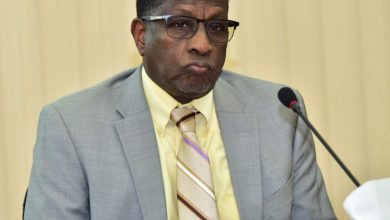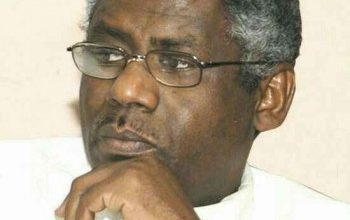The 15 April 2023 War: Transition from Combat to Politics, but Where Are the Politicians?

Mohammed Mahjoub Haroun
Former Director of the Peace Research Institute
University of Khartoum
3 September 2023
Translated by: Ramadan Ahmed
(1)
Transition from Combat to Politics
The Sudanese army is undoubtedly moving towards achieving a significant military advantage over the Rapid Support Forces (RSF) rebels while showing incredible bravery, albeit at a high human and material cost. This is not a matter of dispute and does not require a doctoral degree to validate it. The 15 April 2023 War, which struck Khartoum and states in western Sudan, will soon end as an active combat operation, at least in Khartoum’s capital. The war will end at the negotiating table between representatives of the National Armed Forces (NSF) and the RSF rebels, often mediated in Jeddah. The conclusions of the negotiations will likely promote the preservation of the state and the recovery of its structure from the destruction it has sustained. However, we have not seen Sudanese civil forces or their insignificant ceremonial presence in Jeddah. In terms of power and reality on the ground, the war is managed by the combatants who will determine its end on the battlefield. Other related items are settled at the negotiation table.
The war’s end at the negotiation table is one of many crucial issues. Negotiations come next, and reaching them is of no significance. The most critical question is, where is politics, and where are the politicians?
The Post-15 April Sudan is different from the Sudan known before this date. The war that hit the capital is unprecedented, by multiple accounts. It seems clear that its overall cost exceeds the cost of the entry of Muhammad Ali Pasha’s forces into Sudan (1820), the cost of the entry of the Mahdist revolution forces into Khartoum (1885), and the cost of the entry of British colonial troops into the country (1899).
From another perspective, this war represents the culmination of the errors of Sudanese politicians and elites in the post-independence era (1956).
Judging from the performance of national political forces in the political space, the public interest has been neglected, not recognised for what it is, and not pursued. Political divisions among politicians and educated elites often hid behind partisan and personal vested interests. Due to these corrupt entrenchments and insane alignments, the elites lost their ability to agree on common ground under the banner of the nation and unified citizenship. Which sensible person denies the function of the state and argues about what it stands for?! Aimless confrontations!!
The country suffered from the waste of its resources and the depletion of its energies. The structure of the state is weakened, and thus, its sovereign presence and functionality do not exist anymore. The state is on the verge of disappearing. The 15 April War is a ceremony showcasing the incompetent performance of the political and public forces.
Let us not allow this to happen again.
(2)
Where is Politics, and Where Are the Politicians?
The curtains of the political theatre in post-April 2019 Sudan were opened for us to witness a political drama characterised by exhaustion, weakness, and the degeneration of human and institutional capabilities.
During the three decades of the Salvation/Bashir regime, political opposition entities suffered an evident decline. Indeed, these political forces experienced policies of exclusion and integration into the structures of the Salvation government, resulting in self-erosion. The new political era began with the dominance of the Freedom and Change Alliance (FCA), which includes parties and civilian formations in the public political space. It was understood that FCA had a louder voice in the overthrow of the National Salvation Revolution (NSR) regime (of Bashir) and a share more significant than its weight in the (power-sharing) process, the catchy phrase in Sudanese political discourse today!
The FCA parties had no significant political weight except for the National Umma Party (NUP). The eldest among them, except for the Sudanese Communist Party (SCP), have no track record in national politics that qualifies them to participate in governance according to the qualification criteria of democratic systems. The youngest among them, at best, are formations of educated urbanites from middle-class and working-class backgrounds that emerged from the student movement and do not seem to have achieved a popular breakthrough that would provide them with a popular base to play a political role in a democratic system. This is the first flaw on the path to finding an answer to the question: Where is politics, and where are the politicians?
This is evidenced by the weakness of the National Umma Party (NUP), among other things, having positioned itself in the back seat of the FCA. This led, during the days of the NUP leader, the late Imam Al-Sadiq Al-Mahdi, to freeze his membership in the FCA. Since then, the party has become a “rider of two saddles.” In other words, being a member of FCA and at the same time not a member of FCA! Nothing else, other than this, to indicate the big party’s weakness! The general behaviour of the NUP’s leading entities and figures oscillates between leaning towards independence based on nationalism and Ansarism and following the footsteps of the late Imam on the one hand and leaning towards soliciting support from a spectrum of power centres, locally and internationally on the other hand. This is another flaw.
Like the NUP, the Unionist Party (UP) also shares the same case of sickness, given that both are old parties representing the dominant national political mainstream. Both parties share the same ailing condition. The parties have cracked like a stick in the hands of a woodcutter, with the stick breaking into scattered splinters, with a meagre core remaining in some way. The party’s leader, Maulana Mohammad Osman Al-Mirghani, has aged, and his leadership grip has weakened to the extent that his sons, Mr. Mohammad Al-Hassan and Mr. Jafar, chose to position themselves opposite each other. The UP ended up being represented in the FCA by dissidents from its student organisation, formerly the Unionist Alliance. This is another structural flaw.
The Islamist trend suffered from divisions and fragmentation, like others. Their organisations were shocked by the change. Most Islamists in the National Congress, the Popular Congress and those known as the Forces of the Pavement did not expect the change to happen, similar to what happened in April 2019. Islamist organisations were absent, and their voices were muted, except for occasional celebrations interspersed with long dormancy periods. Here, we can imagine the state of affairs in the public domain after the withdrawal of a force that had dominated it for thirty years, having shaped its features and built networks of human capital that controlled it and managed state structures! Islamists have left a significant gap that is too difficult for the FCA to fill. This is another structural flaw in the composition of politics and political formations in the public political space.
The grassroots support for national political formations has shrunk at the country’s peripheries, in the west, south, and east. Not only the grassroots support for national political formations that have shrunk but also the influence and popularity of regional formations (such as the Sudanese National Party in South Kordofan/Nuba Mountains and the political formations in Eastern Sudan) have diminished due to the emergence of armed protest movements in these regions. This is an additional flaw.
When they returned to Khartoum following the Juba Peace Agreement in October 2020, the armed protest movements were no less exhausted than the other political forces. They faced challenges related to reorganising themselves after being involved in wars that had lasted for decades.
All political organisations were weakened, political discourse stagnated, structures eroded, human capital depleted, and actual performance diminished. Many prominent leaders withdrew from the political scene.
This was the drama in the political theatre when the
Salvation/Bashir regime began to crumble in April 2019 from the actors’ perspective, suitability, and performance! The actors could not recover under the prevailing conditions of division, polarisation, and absence, including the inability to reformulate their political discourse and structures. This meant a broad political vacuum.
(3)
Who Filled the Political Vacuum?
Looking at things objectively, we can see the weakness of political forces and educated elites when they resorted to protesting in the vicinity of the General Command of the Armed Forces in Khartoum on 6 April 2019. At that time, the army leader was the country president against whom they protested. Nothing like that happened in the 6 April 1985 revolution to which we were witnesses. Perhaps not even in October 1964.
This weakness led to the creation of a political vacuum filled by political forces in power (the FCA with various coalitions, both individually and collectively) after April 2019, either by relying on their internal power centres (the army) in April 2019 or (RSF) in December 2022 when the Framework Agreement was singing, or external forces throughout the post-April 2019 era. The political forces outside of power (Islamists and their allies from tribal chiefs and political factions that split from their mainstream parties) also filled the vacuum by approaching the army!
Political parties and elite formations are still waiting to return to the political scene at this moment in our political history to perform their political work as they should. However, after the unprecedented 15 April War and its unparalleled cost, it is not responsible, reasonable, or ethical for political forces and civilian formations to consider the situation as if we are on a summer vacation, returning to business as usual.
Priority is for the parties to address specific concerns about a fundamental reform agenda, with “those closest of kinship deserving kindness” [citation of a religious text]. This priority is not only for political reform processes carried out by political entities and elite formations objectively and courageously, but it is also essential for building a post-war Sudan instead of having “the old wine in a new vessel”, so to speak.
Furthermore, it is of paramount importance that a shared awareness is developed by national elites, along with various segments of the national public opinion, that the war, with intense pressure and urgency, highlights the immediate and top priority of retrieving the rule of law and order and reinstating the bureaucratic apparatus of the state. This addresses the violence, chaos, and hatred resulting from the war and the absence of the bureaucratic apparatus (government) in direct combat zones and surrounding areas across the country. The priority here is to restore everyday life gradually. As for building the political model for post-war Sudan in terms of agreeing on a state model, structuring governance institutions, and embarking on a nationwide project for democratic transformation and economic and social development, these are processes that require stability. In our current situation, stability requires a strong focus on maintaining security, establishing the rule of law, and gradually bringing life to normalcy. All of these are functions of a first-class state. When the security situation deteriorated on the eve of 15 April this year, the residents of Khartoum and some western regions found themselves without a state. They did not have a homeland to turn to, and they had to either leave their homes and live as displaced people in other regions of their beleaguered country or become refugees in countries that may never become their alternative homeland!
(4)
Ending the War and the Post-Conflict Agenda
So, how will Sudanese men and women prepare for this moment, the hour of ending the war? How will they define the concerns of post-war Sudan?
The nature of the post-war era is unprecedented in magnitude, cost, and immediate consequences. Requirements and agenda of the partners busy on the negotiation table must be clear, as well as of the post-war era. This must be sufficiently clear.
In the third chapter of this article, I mentioned:
“It is of paramount importance that a shared awareness is developed by national elites, along with various segments of the national public opinion, that the war, with strong pressure and urgency, highlights the immediate and top priority of retrieving the rule of law and order and reinstating the bureaucratic apparatus of the state. This addresses the violence, chaos, and hatred resulting from the war and the absence of the bureaucratic apparatus (government) in direct combat zones and surrounding areas across the country.”
And I added:
“As for building the political model for post-war Sudan by agreeing on a state model, structuring governance institutions, and embarking on a nationwide project for democratic transformation and economic and social development, these processes require stability. In our current situation, stability requires a strong focus on maintaining security, establishing the rule of law, and gradually bringing life to normalcy. All of these are functions of a first-class state.”
Accordingly, we need, first and foremost, to accept and acknowledge our need to propose a new paradigm for managing the phase of ending the war and the arrangements for the post-war era, in the sense that the current war is an unprecedented case, as mentioned above. It is only possible to discuss the details by agreeing on that initially.
1. This paradigm, given that this stage is a stage of responsibilities and not privileges, requires first that we leave what belongs to the state for the state and politics for politicians and a specified period. This is a necessary and prioritised process.
2. We call it a transition, emergency management, first-aid, or arrangement of affairs. Ending the war requires focusing on an agenda before conceptualising its structures and who will occupy them. As for the agenda, it includes, in addition to any other tasks, the recovery and operation of the bureaucratic apparatus (public service) to deal with security issues, law enforcement by establishing justice regarding the restitution of private and public rights, reoperating the civil government apparatus, and carrying out relief operations to enable displaced and refugee citizens to return to their homes and businesses, restore service networks, and operationalise the market.
3. This task should be left to the current military authority without dispute to establish its structures and oversee their management with a civil body at the federal level consisting of nationally recognised competent individuals. Wisdom might dictate maintaining the representation of the Juba Peace Agreement forces (2021). Juba forces may also accept any reviews required by the post-war situation in agreement with the military leadership. Of course, we need to determine in this model where legislative authority lies at both federal and state levels.
4. The federal authority will be occupied with federal issues. Since the capital is the region where the war broke out for the first time under the national state after the second independence (1956), it may lead to the focus of the federal structures on Khartoum’s concerns, whether we like it or not. Since maintaining security and enforcing the law represent a significant task even at the state level in the post-war era, it may be more appropriate at the state level to form civilian governments led by military governors, be they in service or retired.
5. At the localities and administrative units level, it may be essential to adopt the same local government system and strengthen it by mobilising local leadership to preserve security and maintain societal cohesion. The war has created divisions in local communities, which cannot be mended without the involvement of local tribal leaders in this mission. The involvement of local leaders can be carried out within alternative practical structures, such as local councils or administrative units nominated by the commissioner/governor and approved by the state government.
6 As for the civil space forces (political parties, civil society structures, and traditional society), all without exception and with a broad national consensus as the basis, the priority agenda for them is to engage in making arrangements for Sudan after the war. Part of this task relates to party reform, resetting civil society responsibilities, establishing structures, and making legislation. This task requires that its topics must be clearly highlighted, as well.
7. The second aspect of the task of civil space forces, necessarily in consultation with the military institution as well, involves building the political model for Sudan after the war. This includes reaching an agreement on the state model and designing the structure of governance institutions, rebuilding as a developmental rather than relief project, launching a national project for democratic transformation and economic and social development, and establishing the constitutional foundation for Sudan after the war.
8. All of these arrangements require a constitutional foundation, necessarily. Since these are temporary arrangements, their constitutional foundation can be established through transitional constitutional measures issued by the military leadership.
9. To make these arrangements a subject of an agreement and to make their implementation feasible, mutual assurances are essential, including assurances from the military leadership to provide a sufficient basis of freedom during this transitional period and to give the commitment to return to complete military service by the end of the transitional period, ensuring the continuity of governance as agreed upon by the civil space forces. This path ends with free and fair elections to be prepared for by the end of the competency government’s term.
10. Because these arrangements must be owned by the Sudanese, a group of Sudanese with wisdom, eligibility, experience, technical knowledge, moral integrity, and societal acceptance must facilitate such arrangements.
11. Since Sudan, like other countries, is not an isolated island in a sea of states and regions, we cannot do without, if not must, making these arrangements through an understanding with all external parties that Sudanese deem necessary, as wisdom so requires. The course of this international momentum to end the war and ensuing arrangements will be determined by Sudanese men and women based on Sudan’s public interest.


